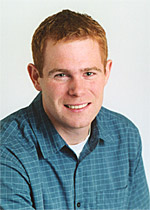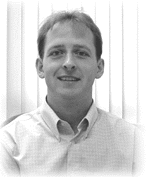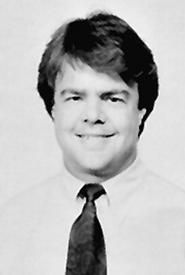Why a Queen's PhD?
Kim Huynh (Ph.D. 2004), Assistant Professor, Indiana University:
"The major reason why I choose QED to do a Ph.D. was the commitment to top-notch research. Collegiality and interactions between students and faculty were a major part of the success of the grad program. Seminar and workshop series are lively and student input is deemed key. Ph.D. students were treated as colleagues by faculty. Even though the size of the department was small relative to other Ph.D. programs, our presence was usually one of the largest at the Canadian Econometric and Macroeconomic Study Groups. Large attendance was in no doubt helped by the generous travel subsidies by faculty members and peer effects.
Another benefit of the small class size is the interaction of students from different cohorts. We learned a lot from one other --- in particular, the Ph.D. 999 seminars served as a useful forum for post-comprehensive students to present their ideas in a relaxed, but challenging, environment. We learned the values of criticality and scientific rigour in a congenial environment."
Andrew Leach (Ph.D. 2004), Assistant Professor, HEC Montréal:

"The aspect of the Queen's program that was, I feel, most beneficial to me was the integration of graduate students in the academic environment of the department. Other positives were the level of availability of the faculty and the level of support available for research.
In the QED, students were always encouraged to interact with visiting speakers [and] participate in seminars. The skills and confidence that I developed through these interactions have really smoothed my transition to an academic department.
The faculty involvement with students in all aspects of department life is a very important asset of the QED. The faculty seemed to always be aware of what students were working on, and how that work was going. The number of times that my first introduction to a faculty member involved them asking me about some aspect of my research was very impressive. It created an environment where students were able to best make use of all of the resources of the department as a whole.
The support for research at Queen's was fantastic. Graduate students at Queen's often had access to better computing resources than do faculty in some departments. I think we see the fruits of that labour on the job market, where Queen's students are consistently able to maintain a competitive advantage over others due to technological access. Another important aspect was the culture of the department as it related to conferences and presentations. I had presented to an academic audience at least 10 times before I went on the job market. This was certainly the same for most of my colleagues, and I can't help but think that this was a great asset on the job market for all of us.
Todd Mattina (Ph.D. 2001), Economist, International Monetary Fund:
"Queen's provides world class preparation for a career in research, business or policy work. The faculty offer a wide array of research opportunities in diverse fields, and placement has typically been strong. My own class colleagues have found rewarding jobs in several countries, ranging from tenure track positions at high-caliber research institutions, consulting opportunities, and international financial organizations. The Queen's alumni where I work (at the International Monetary Fund) speak glowingly of their experiences. I would have no trouble recommending the excellent graduate programs at Queen's for any desired career path."
James Yetman (Ph.D. 1998), Assistant Professor, University of Hong Kong:

"The QED is a place that is committed to its students. From the way in
which scholarship money is allocated, through to relationships with
individual faculty members, this commitment endears a sense of
collegiality to the department. As a result, only a small fraction of QED
students fail to complete their graduate studies. Having heard the horror
stories from students studying elsewhere who have struggled with volatile
financial support or inadequate thesis supervision throughout their PhD,
these strengths of the QED program should be powerful incentives for
students to choose Queen's for their Economics PhD."
Joanne Roberts (Ph.D. 1998), Associate Professor, University of Toronto:
"I find now when I talk to potential PhD students that they often don't consider the varying cultures of different departments when they compare graduate schools that they might attend. One thing that going to Queen's taught me was that this is a serious omission. Queen's offers a unique opportunity to learn in a highly collegial environment, where faculty view students as an essential part of department life. I imagine there are few places, if any, with such a high level of faculty-student interaction."
Lisa Powell (Ph.D. 1995), Associate Professor, Institute for Health Research and Policy, University of Illinois Chicago:
"The QED provided me an excellent environment to pursue and successfully complete my Ph.D. The faculty in the Department of Economics strongly support their students both in terms of the rigorous courses that they offer and their outstanding dedication to thesis supervision. Even having graduated almost a decade ago, QED faculty have continued to show their commitment by recently providing me with letters of support as I moved my academic career from Canada to the US."
Marianne Vigneault (Ph.D. 1993), Associate Professor, Bishop's University:
"I am always eager to recommend Queen's to my top graduating students. My experience at Queen's was excellent, both for the Master's and Ph.D.. Top on the list of the reasons why is the excellent instruction I received. Not only were the courses taught by excellent researchers in their respective fields, but I always felt at ease in approaching most of my professors for help outside of the classroom. This was important to me after graduating from a very small undergraduate university where teacher-student interaction is key. Also at the top of my list is the excellent supervision I received from my Ph.D. supervisors. Their assistance was key to my completing my Ph.D. so quickly. While I was taking courses at Queen's, I also appreciated the workshops and the visiting speakers. They were essential in my transformation from an undergraduate student to a researcher. I also appreciate the reputation of the economics department when I list my Queen's degrees on my resume or simply in conversations with other economists at conferences."
Chris Telmer (PH.D. 1991), Associate Professor, Carnegie Mellon University:
 "I learned many things at Queen's. I learned how to do rigorous,
quantitative economics research, and how to have fun doing it. I
learned, by observing my faculty mentors, how important teaching is
and how rewarding it can be. I learned how graduate students and
faculty can, in the right environment, live and work as peers. The
intellectual and social fabric of my QED years continue to serve me as
an important watermark for what an economics department should be."
"I learned many things at Queen's. I learned how to do rigorous,
quantitative economics research, and how to have fun doing it. I
learned, by observing my faculty mentors, how important teaching is
and how rewarding it can be. I learned how graduate students and
faculty can, in the right environment, live and work as peers. The
intellectual and social fabric of my QED years continue to serve me as
an important watermark for what an economics department should be."


